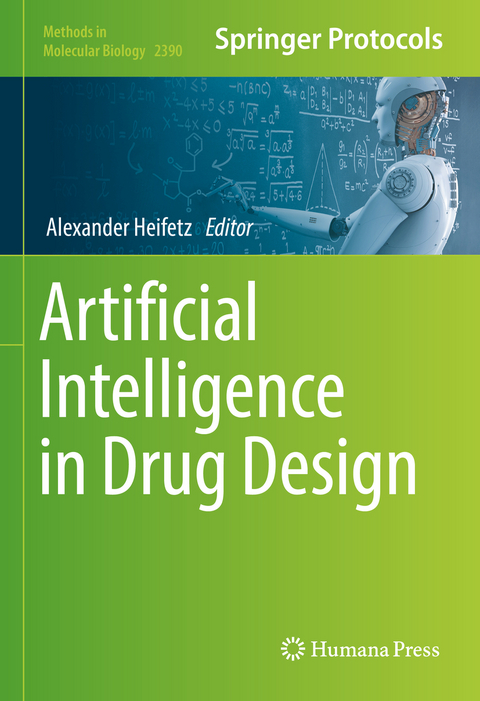
Artificial Intelligence in Drug Design
Springer-Verlag New York Inc.
978-1-0716-1786-1 (ISBN)
Cutting-edge and unique, Artificial Intelligence in Drug Design is a valuable resource for structural and molecular biologists, computational and medicinal chemists, pharmacologists and drug designers.
Applications of Artificial Intelligence in Drug Design: Opportunities and Challenges.- Machine Learning Applied to the Modeling of Pharmacological and ADMET Endpoints.- Fighting COVID-19 with Artificial Intelligence.- Application of Artificial Intelligence and Machine Learning in Drug Discovery.- Deep Learning and Computational Chemistry.- Has Drug Design Augmented by Artificial Intelligence Become a Reality?.- Network Driven Drug Discovery.- Predicting Residence Time of GPCR Ligands with Machine Learning.- De Novo Molecular Design with Chemical Language Models.- Deep Neural Networks for QSAR.- Deep Learning in Structure-Based Drug Design.- Deep Learning Applied to Ligand-Based De Novo Drug Design.- Ultra-High Throughput Protein-Ligand Docking with Deep Learning.- Artificial Intelligence and Quantum Computing as the Next Pharma Disruptors.- Artificial Intelligence in Compound Design.- Artificial Intelligence, Machine Learning, and Deep Learning in Real Life Drug Design Cases.- Artificial Intelligence-Enabled De Novo Design of Novel Compounds that are Synthesizable.- Machine Learning from Omics Data.- Deep Learning in Therapeutic Antibody Development.- Machine Learning for In Silico ADMET Prediction.- Opportunities and Considerations in the Application of Artificial Intelligence to Pharmacokinetic Prediction.- Artificial Intelligence in Drug Safety and Metabolism.- Molecule Ideation Using Matched Molecular Pairs.
| Erscheinungsdatum | 12.11.2021 |
|---|---|
| Reihe/Serie | Methods in Molecular Biology ; 2390 |
| Zusatzinfo | 89 Illustrations, color; 14 Illustrations, black and white; XI, 529 p. 103 illus., 89 illus. in color. |
| Verlagsort | New York, NY |
| Sprache | englisch |
| Maße | 178 x 254 mm |
| Themenwelt | Informatik ► Theorie / Studium ► Künstliche Intelligenz / Robotik |
| Medizin / Pharmazie ► Medizinische Fachgebiete ► Pharmakologie / Pharmakotherapie | |
| Medizin / Pharmazie ► Pharmazie | |
| ISBN-10 | 1-0716-1786-9 / 1071617869 |
| ISBN-13 | 978-1-0716-1786-1 / 9781071617861 |
| Zustand | Neuware |
| Haben Sie eine Frage zum Produkt? |
aus dem Bereich


